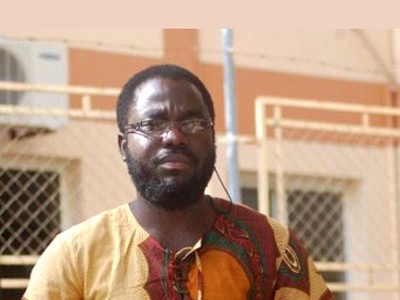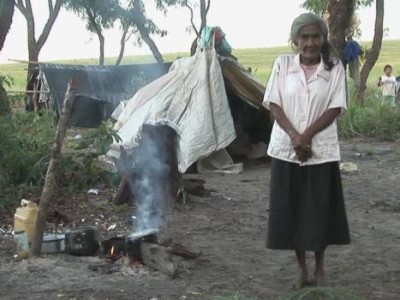Descendant of Indigenous, Germans, Portuguese, Spanish and African – basically a Brazilian. Interested in human rights, feminism and anything related to “minorities.” After study globalization issues in Washington, D.C., thanks to a scholarship, Yohana received a degree in Journalism and now is a content producer for internet and new technologies. Important to share that she is the number one fan of @Rabanada, the Portuguese version of french toast.
Latest posts by Yohana de Andrade
Promiscuity: The Image of Brazilian Women Abroad?
On a television program in Portugal, the president of the Portuguese Bar Association claimed "one of the things Brazil has most exported is prostitutes, among other things." Online responses have been fierce, and the polemical statement is raising questions about the images and stereotypes of Brazilian women abroad.
Angola's Sophisticated Censorship
The 37 years of independence of Angola don't translate into more press freedom. Rather, the model of Angolan censorship is getting increasingly sophisticated. The most recent attack was against the "Semanário Angolense" (Angolan Weekly), condemned to the fire for reproducing a critical speech by Isaias Samakuva, the President of the opposition party, UNITA.
Afro-Brazilian Women, Tight Curly Hair and Black Consciousness
On November 20, Brazil celebrated Black Awareness Day; in honor of the day, we invite you to watch the documentary Raíz Forte (Strong Roots), "start a discussion about hair in terms of belonging to and explaining our African ancestry." The film depicts social prejudices and how black women in Brazil have historically dealt with their hair.
Brazil: Speaking Out About Hydroelectric Plants and the Amazon
Last week we published the first part of an interview with Sany Kalapalo, a young indigenous woman from Xingu and one of the most active voices in the mobilization against the construction of the Belo Monte power plant. In the second part of the interview, Sany focuses on hydroelectric power plants, indigenous people and Brazil's development.
Brazil: Sany Kalapalo – Young, Indigenous and a Xingu Activist
Sany Kalapalo, a young indigenous from the Xingu region, is only 22 years old and is one of the more active voices against the construction of Belo Monte hydroelectric powerplant, in the Xingu river, in the Brazilian state of Pará. Meet her in the first part of this interview she gave to Global Voices Online.
Brazil: Media, Citizenship, and Public Policies Under Debate
To explore topics on "Media, Citizenship, and Public Policies" is the invitation launched by the VIII Brazilian Citizen Media Conference, in September 24th and 25th in Brasília, and Global Voices is there too. Get to know in this article some of the debates, initiatives and workshops that will happen.
Brazil: Misogynistic ‘Humor’ in MTV-Sponsored Blog
A complaint was filed against the blog Testosterone, a blog sponsored by MTV Brazil that constantly posts misogynistic content. Now, online campaigns are calling for MTV to end the partnership with the blog's writer.
Brazil: Deported Activist Returns to Denounce Mining Company Vale
Jeremias Vunjanhe, a Mozambican journalist and activist, was prevented from entering Brazil during Rio+20. After civil society movements and organisations mobilised, Jeremias returned to the country to denounce the actions of the Brazilian company Vale.
Brazil: Famous Singer Pays Homage to Her Iconic Mother
The singer Maria Rita toured Brazil with a series of free concerts in homage to her late mother Elis Regina, one of the most iconic performers of Brazilian music. The subject became a worldwide trending topic on Twitter, as fans of both singers flooded social media with their impressions of the shows.
Brazil: Sex Scandal on Big Brother Provokes Debate on Machismo
The live broadcast of an alleged rape on the TV show with the highest ratings in Brazil on 14th January, with no immediate intervention by TV Globo, led thousands of internet users to declare their disgust and outrage, but also provoked an important debate on machismo and sex education in the country.
Brazil: How Many Lives Does the Guarani-Kaiowá's Land Cost?
Last November, 42 gunmen attacked an indigenous reserve in Mato Grosso do Sul, executing Nísio Gomes, 59, chief of the Guaraní Kaiowá and several other villagers. These attacks take place at the same time as Brazil consolidates its position as one of the leading exporters of agricultural goods and biofuels in the world, and Mato Grosso do Sul one of its most productive states.











